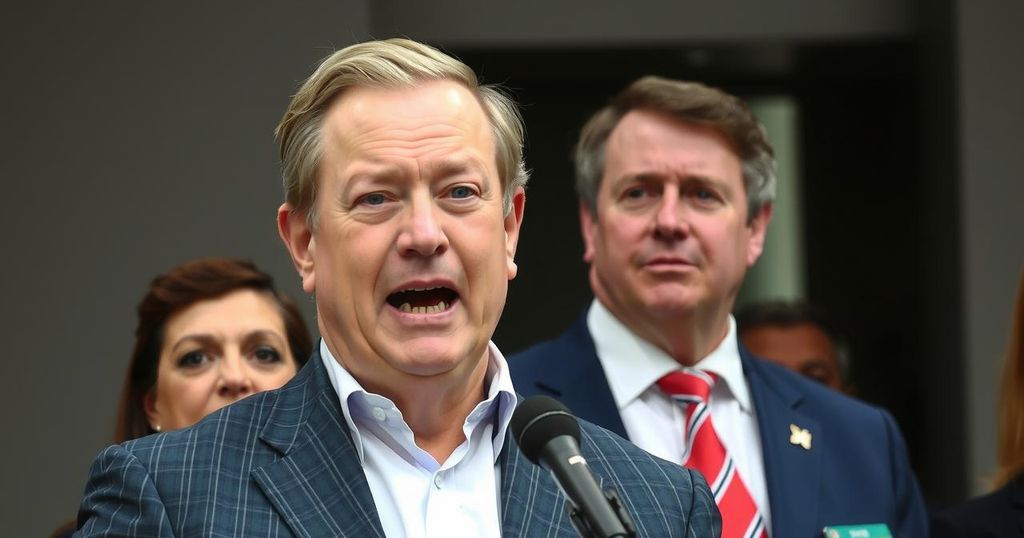Elon Musk has publicly endorsed the AfD, claiming it is Germany’s last hope against economic collapse. His op-ed generated strong backlash from political leaders and media personnel, stirring debate about external influences in Germany’s elections. Critics argue that his support may legitimize far-right ideologies in the nation, prompting discussions on media integrity and political endorsement.
US billionaire Elon Musk has recently reaffirmed his support for the far-right political party, Alternative for Germany (AfD), through an op-ed in Welt am Sonntag, claiming that it represents Germany’s last hope amid a looming economic and cultural collapse. Musk argued that the AfD’s platform, focusing on strict immigration policies and deregulation, is essential for reviving the German economy, challenging critics who label the party as extremist. His commentary has ignited substantial backlash from various political figures and media professionals, raising questions about the influence of foreign figures in domestic elections.
In his op-ed, Musk criticized the negative portrayal of the AfD and pointed towards the party’s leader, Alice Weidel, as evidence of its progressive stand, stating, “Does that sound like Hitler to you? Please!” The publication of Musk’s piece sparked protests within the editorial staff at Welt, leading to the resignation of a senior editor, illustrating the deep divides within the German media landscape regarding political endorsement and editorial integrity.
The article discusses the recent endorsement of Germany’s AfD by Elon Musk, a prominent global figure known for his tech ventures. The AfD has gained notoriety for its controversial right-wing populism and rising electoral support, currently polling at 20%. Given Germany’s history with far-right politics, Musk’s support raises significant concerns about external influences in domestic political matters, especially as the country approaches upcoming elections, thereby complicating the general discourse about the role of media in shaping political narratives within Germany.
In conclusion, Elon Musk’s endorsement of the AfD has not only intensified political debates within Germany but also brought forward concerns about the implications of foreign influence in domestic elections. With rising criticism from various political leaders, Musk’s statements raise fundamental questions about the responsibilities of influential figures in political discourse and the potential normalization of far-right ideologies. The ongoing backlash from media professionals reflects the tension between freedom of expression and the integrity of journalism in the face of contentious political stances.
Original Source: www.dw.com






